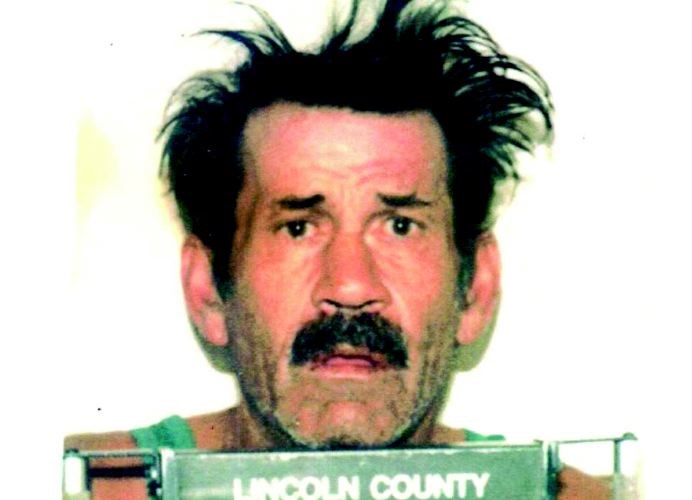Police have linked a former Prince George resident to at least one Highway of Tears murder using the oldest DNA sample in Interpol history.
RCMP announced Tuesday they can conclusively prove that American Bobby Jack Fowler is responsible for the 1974 death of Colleen MacMillen of Lac La Hache and consider him a strong suspect in two other cases. Fowler, who died of cancer in an Oregon prison in 2006, lived and worked as a roofer in Prince George for a period of time in the 1970s.
"There certainly is a possibility Fowler is responsible for at least two others and we're going to try to determine if he's responsible for any of the other ones," RCMP Insp. Gary Shinkaruk said at a news conference in Surrey.
Fowler has an extensive criminal history in the United States ranging from arrests for drunk and disorderly conduct to violent sexual offences. He was convicted of a series of offences in Oregon in 2006 and sentenced to 16 years in prison, but died before his time behind bars was complete.
He was never convicted of murder, but in addition to the B.C. cases under investigation, police forces in Oregon and Texas believe he killed people in their states. He was never arrested for a crime in Canada.
Shinkaruk said since Fowler became a suspect in the Highway of Tears cases, RCMP and other law enforcement agencies have been trying to track down his movements over the years. They believed he travelled often, working odd jobs in construction and roofing. They know he worked for Happy's Roofing in Prince George in 1974, but that company is now out of business and its records were destroyed in a 2011 flood.
Police have examined vehicle and tax records, interviewed some of Fowler's known associates and many of his former cellmates in an effort to figure out where he lived and when. Now they're looking for help from the public to find out more about Fowler's past.
"We believe there are people out there who employed Fowler, worked with him, socialized with him or even waited on him while he was in British Columbia," Shinkaruk said. "We are asking you to think back to the '70s, '80s and '90s - and your own memories of that time period, then have a look at his photos, and please call us with any information you may have about him."
Police believe Fowler may have gone back and forth between Canada and the U.S. many times, although border-crossing records from that time period aren't available to provide precise dates. From what police on both sides of the border have been able to piece together about his travels, wherever Fowler lived, there were often dead bodies of women found near highways.
"It just becomes too often, that's what we were finding," Shinkaruk said.
The RCMP's E-Pana task force is investigating 18 cases of missing or murdered women along Highways 16, 97 and 5 between 1969 and 2006, but police believe not all of the cases are linked.
"Often, historical cases are referred to as 'cold cases,'" RCMP deputy commissioner Craig Callens said Tuesday. "But to the RCMP, there is no such thing as a cold case. Our investigators approach every unsolved case as an active investigation."
Recent advances in DNA technology have allowed police to confirm Fowler is responsible for MacMillen's murder. Shinkaruk said Fowler is a strong suspect in the 1973 cases of Gale Weys and Pamela Darlington, but Fowler has been ruled out as a suspect in eight other investigations. That leaves seven cases where police are open to the possibility Fowler committed murder.
Director of child and family services for Carrier Sekani Family Services Mary Teegee said having one of the cases solved provides hope for the families of victims, but said it's important to still advocate for a complete investigation of all the other unsolved cases of murder or disappearance.
"We're hoping there will be more public scrutiny of the whole investigation, we're hoping there's more public involvement and there's more diligent effort by the RCMP to solve the rest of the cases," Teegee said. "We're always hopeful that there will be closure for the rest of the families."
Although police continue to investigate, Shinkaruk admitted that it might not be possible to solve all of the outstanding cases.
"Will we solve the remaining 17? I'm not certain," Shinkaruk said, adding in two cases police have strong suspects and in some other cases there are persons of interest, but not enough evidence to lay charges.
In the MacMillen case police first submitted DNA evidence to a data base in 2007, but initially came up with no matches. Then in May they re-analyzed the sample and improved technology gave them a more detailed DNA profile. The new sample was given to Interpol and the connection was made to Fowler by Oregon police who were also looking at historical cases involving the suspect. Callens said it was the oldest sample Interpol has ever conclusively matched to a suspect.
Investigators have taken DNA samples from more than 750 people over the course of the investigation in order to try to narrow down the suspect list.
Police defended the length of time it took them to prove Fowler killed MacMillen.
"We, being the police in B.C. and quite frankly Canada, had no idea Fowler had ever been in B.C. after extensive investigation at the time," Shinkaruk said of the investigation leading up to the DNA evidence earlier this year. "These were well investigated in the '70s, '80s and '90s. Our review of these files shows there was exceptional police work done at that time."
Police will be holding news conferences in Prince George and Kamloops on Wednesday to talk about the case.



